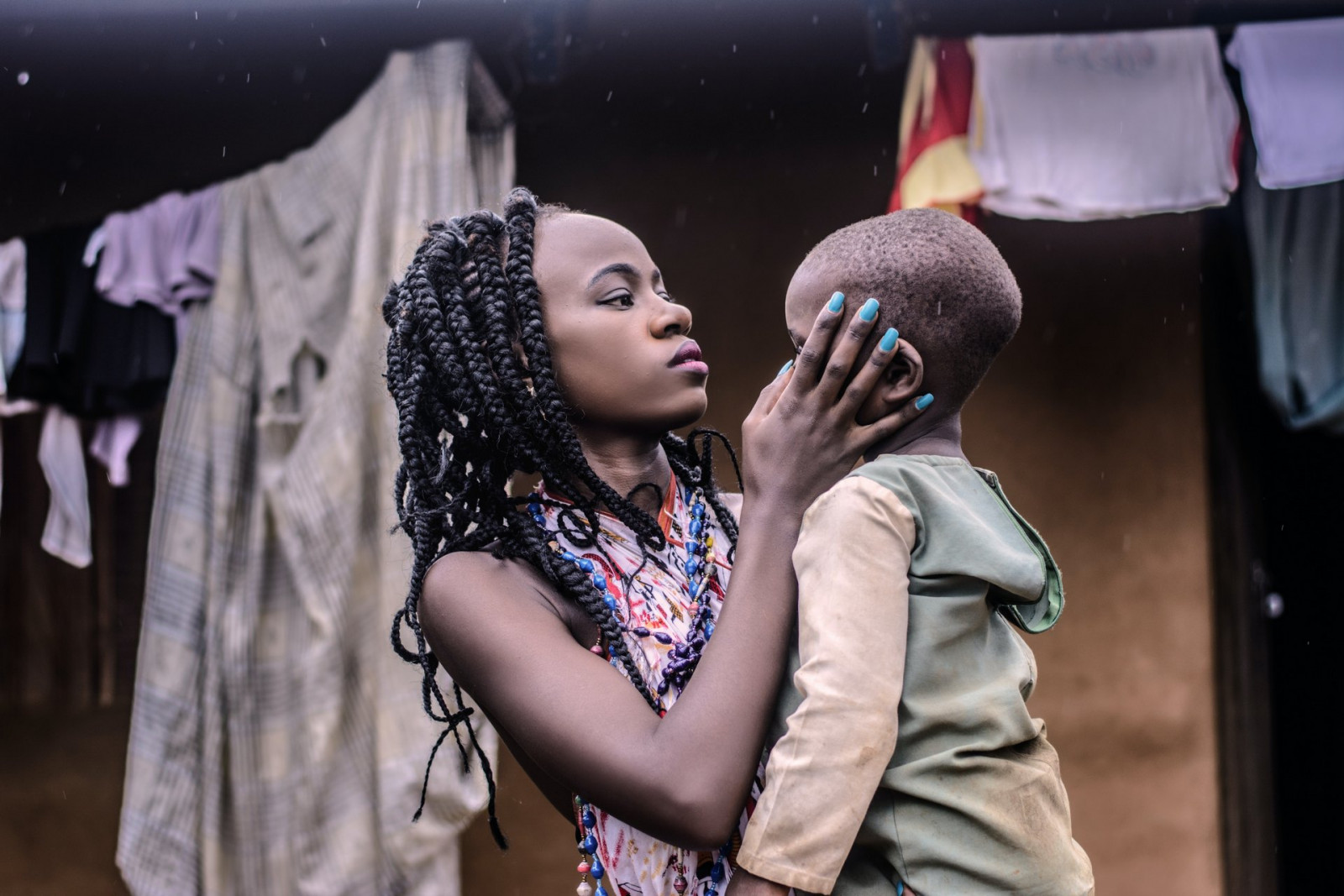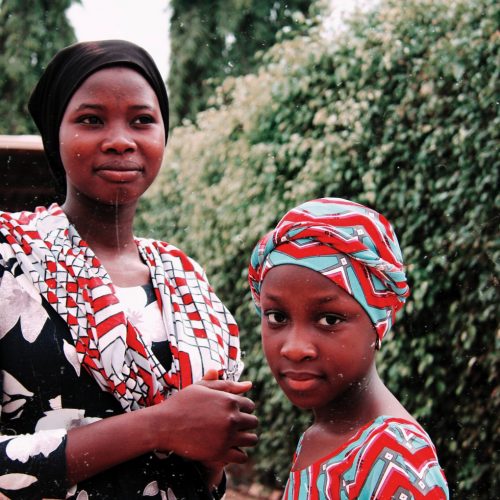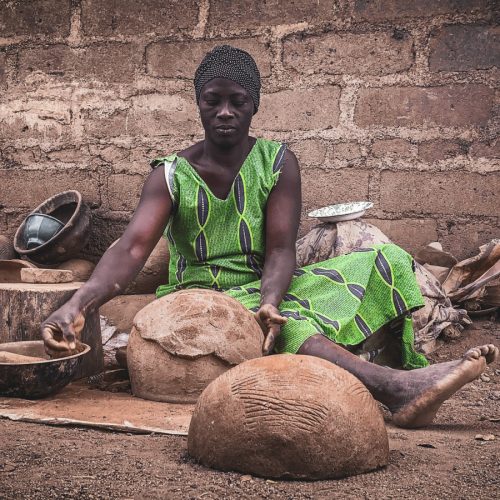This post picks up some highlights from the 2nd Webinar in the SEXRWA project as viewed by our two Ma Students, Blanca Sell Fernandez and Isaiete Jabulá. The webinar was given by prof. Ellen Foley, on “The Politics of Research on Sex: Reflections on Field Work in Senegal“.
As viewed by Blanca Sell Fernandez
Last Wednesday, on the 7th of April 2021, we had the opportunity of having Dr Ellen E. Foley, Professor of International Development from Clark University, joining us for the second webinar of the Sexual and Reproductive Rights in West Africa series (SEXRWA), hosted at CEI-Iscte and financed by FCT (PTDC/SOC-ANT/31675/2017).
During her online presentation, while giving us a rapid and rich outline of her work, Dr. Foley took us alongside as she reflected on her findings and personal journey, in the more than two decades she has been researching and carrying out fieldwork in Senegal.
As she shared with us her thoughts and experiences, as well as some memorable anecdotes from the women she encountered over the years, our speaker paid special attention to the main challenges regarding our understanding of gender, sexuality and sexual reproductive rights present in every scenario she described. Across a variety of ethnographic settings, both rural and urban, including multi-generational polygynous households, programs aimed at adolescent girls in the banlieues, support services for registered sex workers, as well as the promotion of modern contraceptive methods, Foley examined and explained how different negotiations of gendered rights take place in contemporary Senegal. Likewise, our lecturer also focused on the changing nature of gendered conflicts. At the same time she questioned the production of anthropological knowledge on sexuality and reproduction.
Furthermore, Foley’s talk highlighted the many challenges related to the current promotion and mobilization of human rights and of sexual and reproductive rights, while it also addressed the existing scepticism regarding the limited effects and relevance of their universal language, especially in the African context. As she referenced the work of well known African feminists, such as Sylvia Tamale, Chi-Chi Undie and Chimaraoke O. Izugbara, Ellen E. Foley stressed the idea that liberal universal rights are discourses, and that they themselves are cultural products with a particular history. Therefore, by taking into consideration the multiple competing cultural framings of notions of self, personhood, autonomy and dignity, and by being aware of the existing tensions between individual aspirations and structural realities, Foley invites us to rethink human rights from an ethnographic perspective.
As an anthropologist, Foley considers that in order to be able to improve and deepen our understanding of what rights might mean in separate settings, it is important to turn to different framings and ethnographic resources that allow us to be more thoughtful and intentional. According to her, in order for rights to truly have an impact they need to resonate with people’s personal experiences, and not simply promote liberal notions of freedom and autonomy that do little to tackle the ways in which the social structure unevenly distributes rights and responsibilities.
Hence, Foley reminds us of the importance of perceiving how gendered spaces, such as the household, shape women’s lives and determine their future as individuals, given that the elemental components of this social order, particularly those of the family unit, are the ones who may or may not allocate them rights according to their status and respectability. Therefore, these gendered spaces and their networks must be understood as the arenas in which most women and girls pursue and negotiate their rights as daughters, sisters, cousins, wives, co-wives, mothers, mothers-in-law, aunts, grandmothers, widows, and so on.
Throughout every scenario she described, Foley studied the different ways in which women were able to be agentive (not mere bystanders). Likewise, she also paid attention to how women’s personal aspirations were constrained by what was expected of them and deemed to be morally appropriate. Making it clear how rights are not enshrined in individual persons or bodies, but in shared notions of what is considered to be acceptable among the members of a given society. Consequently, based on her own research, Foley concluded that beyond the ‘safe shores’ of marriage and motherhood, women’s self-sufficiency wasn’t considered to be socially or economically viable, making Senegal a tenuous place to try to claim or advocate for sexual and reproductive rights.
Likewise, towards the end of her presentation, Foley brought up the issue of the 2008-2009 homophobic backlash in Senegal. She pointed out as well that there is a lack of representation of activists that identify as LGBTQI+ within the country. At the same time, Foley also spoke about the renewed energy of population control and of the rise of the demographic dividend, as key elements of the resurgence of the family planning movement during the past decade. As she expressed her concerns regarding their problematic goals of limiting fertility in West Africa and accelerating demographic transitions, Foley focuses on the turning point of this global conversation on development, economic prosperity and fertility decline.
According to her, Senegal finds itself in an equally interesting and problematic moment, on which there is a direct confrontation between codified rights and the ability to truly execute them. A situation that, in her opinion, begs the question of how rights are both necessary and at the same time insufficient. Nevertheless, Foley believes that there is room for improvement, and invites us to reflect and discuss collectively on how we can make sexual and reproductive rights more promising, by interrogating and confronting their more problematic assumptions.
As viewed by Isaiete Jabulá
On the 7th of April 7, took place the second Webinar on the SEXRWA Series. Focusing on “The politics of research on sex: reflections and lessons learned from two decades of field word in Senegal”, Ellen Foley, Professor of International Development and Social Change at Clark University in Massachusetts, shared her field research experience in Senegal for the last 20+ years. She has worked mainly in the domains of gender and health, reproductive health, HIV / AIDS. Among some of the highlights we can find: gender relations in polygamous families, adolescent and youth empowerment projects, sex workers’ dilemmas, and the challenges of LGBTQ+.
Through the analysis of case studies, she illustrated how gender politics is structured in Senegalese societies, whilst never forgetting women’s abilities in opposing and undermining male leadership. Women, especially the younger ones, are seen as being increasingly engaged in improving their statuses within the family and society. Furthermore, Foley stressed that to understand gender relations in the family, we have to consider the relations between wives, mothers, sisters-in-law, to better grasp how women mold their reproductive choices, sexuality, general health and well-being.
From this observation, she highlighted the importance of women’s collective efforts, and how they contribute to the strengthening of human relationships and cohesion. This cohesion works as a sort of protection in the context of the multigenerational family, being directly connected to the division of domestic labour. Considering the burden of domestic reproductive labour on the back of women, Ellen Foley called the attendees attention for the need to understand how much the distribution of rights and responsibilities is unequal. Women seldomly have leisure time for example. For us to understand how this social order distributes rights and responsibilities we have to keep checking women’s ethnographic, historical, and cultural resources, and how women mobilize them.
As an example, Foley brought the discussion of sex labour and the issue of prostitution. She tells us that even though the practice is legalized and the registration model is somehow successful, because it allows to monitor the HIV/AIDS and other STD’s it still entails a considerable amount of stigma for sex workers, making it a poor alternative in the worker’s perspective. For fear of being identified, stigmatized, or targeted by prejudice, many women refuse to formalize the act, carrying out the practice clandestinely, thus representing a threat to the HIV/AIDS control system. To circumvent this situation and encourage comprehensive registration of sex workers, she recommends that the structures and strategies of the national AIDS program be changed to ensure greater protection for informal sex workers from police abuse, and ensure that they have access to health services without being stigmatized.
A second discussion was made around the issue of homosexuality, something that Senegalese society remains insensitive to, often showing virulent intolerance. In terms of public discourse, political and social actors speak in half-terms, no one takes a firm stand on the side of the vulnerable.
****
Both texts were edited by Ricardo Falcão




